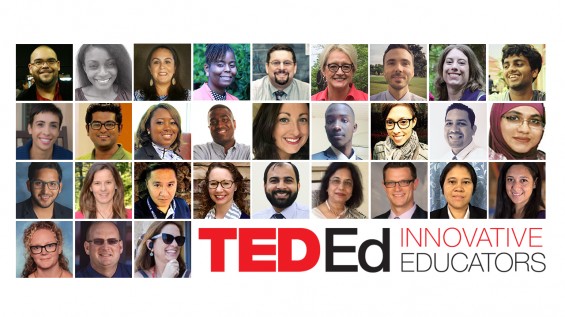
Meet the third cohort of TED-Ed Innovative Educators!
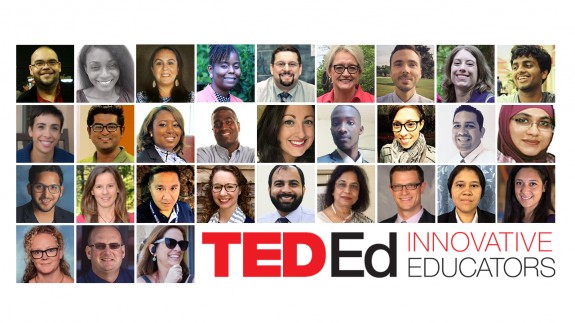
Rwanda. Malaysia. Pakistan. Those are just three of the 11 countries represented by the third cohort of 30 TED-Ed Innovative Educators. [Learn more about the TED-Ed Innovative Educator program here.] As leaders within TED’s global network of over 250,000 teachers, these outstanding educators are dedicated to making the world better for learners everywhere by helping people make the most of TED’s free tools for teachers and students — including TED-Ed Lessons, TED-Ed Clubs and the TED-Ed Platform. Throughout the year-long professional development program, this small but mighty group will connect regularly across time zones and national borders to explore, create and share idea-based innovations that spark student curiosity. Below, meet the third cohort of TED-Ed Innovative Educators as they embark on a voyage of discovery.
What inspired you to become an educator?
We asked the third cohort of TED-Ed Innovative Educators. Read their answers below:
Umar Anjum, Lahore, PAKISTAN
“In early 2000 I was part of a club that used to visit a center for runaway children in Lahore, Pakistan. I remember almost 70% of the children at that place had run away because they had teachers who used to treat them badly. This particular incident made me think that a similar attitude from teachers at a large scale can damage the coming generations. This served as the point where I started thinking about becoming a teacher. Then a series of events and incidents made me stick to my decision.”
Marcos Silva, Texas, USA
“My role as a educator dates back to my experience as a migrant. We were a family of 5 traveling to Washington State. I was the youngest, and this experience meant something completely different to me than it did to the adults in my family. This trip was the first recollection I have of being self-conscious, of being lost, but of also being self-empowered. I was lucky enough to have learned a little bit of English before going to Washington schools and because of that, I was the class translator for my other migrant peers. That role came with many confusing moments. Was I making sense in Spanish? Was I making sense in English? Was I actually translating correctly? My parents didn’t know English, my teachers didn’t know Spanish, and my peers trusted I was correct all the time. My inspiration to be a teacher comes from knowing that my community needs advocates just like my family needed advocates when I was young. Today, I serve the community that watched me grow. My story is not that different from several of the students who sit in my class now.”
Mbao Ngula, Mongu, ZAMBIA
“Perhaps the most important is the belief that I bring a different perspective to education in my country, and that by being consistent and making small changes wherever possible, change can happen. I did not set out wanting to be an educator, it is something that I evolved into as part of my work. Somewhere along the way it became clear that the only way to even the arena for the underprivileged in my community was to make education available to everyone. It also became clear that our educational system needed the kind of support that is able to identify the challenges and create local solutions, and so this is what I set out to do. Not to overhaul the system, but to find the cracks and fill them. To find the bends and straighten them out. It wasn’t necessary for me to reinvent the wheel, but to simply build on what others have accomplished to move my community from where it is to where it wants to go. A really good example is the introduction of the first TED-Ed Club in Zambia. The children just participated in their first TED-Ed Connect Week, and quite a number of them came to me afterwards and said “Miss Mbao, that was exciting! I have never spoken to anyone in another country.” Now they want to learn about the countries from which their counterparts come. These are children who are not only learning about how to effectuate change on the policy level, but who are getting actively involved in cleaning up their school and community. These children are not looking for handouts, even though they have so little. They are instead looking to make use of what they have to improve the human condition. This to me is change: enabling others to do things for themselves. I guess among a host of other reasons, I am an educator because I believe in our children and their ability to identify challenges and effectuate change when provided with the guidance and resources needed to do so.”
Khondker Fahmida Ahmed, Dhaka, BANGLADESH
“I love to learn and be creative, and being an educator means that I have to continue learning in order to disseminate worthwhile knowledge.”
Jorge Alvarez, California, USA
“It’s widely known that there is an achievement gap and a re-current poverty cycle among minorities. I know that education is the key to close that gap and end that cycle. As a lifelong learner, I appreciate the value of education, and I encourage others to follow their dreams and continue their education beyond high school — whether that means going to a vocational school, community college, or a 4-year university. In addition, I know that education is the key not only to economic issues, but to many social issues that we are confronting at this time. Like Marie Curie stated, “nothing in life is to be feared, it is only to be understood.”
Tiffany Badger, California, USA
“At a time when the original Jurassic Park movie had me convinced that I wanted to become a paleontologist, Bob Jarnigan, my sophomore year English teacher, inspired me to become an educator instead. Each day, his class lit my mind on fire with ideas, and for the first time I realized how the analysis of poetry and literature had a much larger implication for critical thinking in the real world. Basically, I wanted to become him — but in a fabulous and coveted position as a beloved scholar at a university. As I grew older and continued my study of the Spanish language, I morphed my dream of becoming an English professor into becoming an educator dedicated to working with immigrants and English learners, thanks to my work as an English tutor in the Adelante program at Santa Monica College, and my volunteer work with the Compensatory Education office in rural Fresno County, California. Before I graduated from college, it was clear to me that working as an educator would be the best way I could give back and serve a community that I strongly believe is underserved. I am committed to social justice and promoting it in my community, and while there are many ways to achieve this goal, teaching, for me, is the best way I can. I have so much fun learning from and working with students. Regardless of which curveballs the system may throw our way as educators, or how stressed out I may get at points during the school year, the students always keep me going. Watching them learn, grow, and become successful and empathetic citizens is my version of divinity on Earth.”
Dani Bostick, Virginia, USA
“I started teaching to honor the legacy of my deceased high school Greek and Latin teacher, Mr. Pitcher. I had a very rough, trauma-filled childhood. The languages, history, and mythology of the ancient world provided me with an escape that developed into a lifelong passion. As a teacher, I love watching students become passionate about Latin and make connections between the ancient world and modern-day society.”
Timothy Couillard, Virgina, USA
“I never meant to become a teacher. Right after college, I decided not to go to graduate school in Physics and I needed something to do. I was hired to teach Physics and Chemistry as an emergency position at James River High School. The challenge of working with young people and helping them learn something hard like physics represents a lifelong challenge for me that I have not yet mastered. I am inspired by sharing the world daily with kind and curious young people. The impact you have on your students’ lives (and their impact on you) is what has inspired and kept me coming back each Fall for the past 20 years.”
Tobye Ertelt, Colorado, USA
“I was born to be an educator. I love watching people find value and inspiration in learning, and I love being a part of that experience. I think it is very satisfying when you are a part of productive struggle to create a new learning, experience or product.”
Alejandra Guzman, Texas, USA
“When I was working on my Master’s degree at Texas A&M University, one of my professors asked me to give his lecture on the evolution of the kidneys since he was going to be out. I was so nervous, as I had never really done any presentations in front of such a huge crowd (about 100 college freshmen). It was such a thrill to teach these eager minds. I never thought learning and teaching about the evolution of kidneys would be such an adrenaline rush! At that moment, I knew that educating future generations was my calling and passion. Every since then I have taught in some way, shape or form. Luckily, it comes naturally to me — it’s in my DNA, really. I learned from the best: my parents, grandparents, aunts and uncles were all rock star educators.”
Saad Hamid, Islamabad, PAKISTAN
“It started with the Internet, a decade ago, when I discovered that I could self-learn and taught myself a lot of skills. Since then, I have been on a mission to teach the young people of my country various skills and programs using specialized and accelerated techniques for learning, and so far I have been able to affect the lives of as many as 5,000+ people in my community. My affiliation with TED definitely instigated the passion inside me to become an educator, as I have been working as the curator of TEDxIslamabad, and the Senior Ambassador to TEDx, for over a couple of years now.”
Rahul Jayaprakash, Tamil Nadu, INDIA
“My educational journey starts in Chennai — where my parents had just settled in after their marriage and wanted their children to get the best education possible. I secured admission into what was arguably the best school in Chennai, and my family and I hence assumed that I was getting the best education possible until my 11th standard where I met Mr. Ravishankar — a physics professor who took after school classes. Ravishankar not only showed me how fascinating physics is, he also unintentionally showed me how much the current education system fails to inspire young students to develop a keen interest in the core subjects. My educational journey in college reaffirmed my belief that an excellent teacher will inspire you to be an excellent student, irrespective of what the course/topic/subject is. I had the opportunity to meet some wonderful professors through my college life, and those interactions contributed a lot to who I am today. This awareness of the impact a teacher can have on a student’s life is what drove me to Teach for India. Over the past year, I have enjoyed every minute I have spent in my classroom inspiring and teaching students.”
Anthony Johnson, North Carolina, USA
“My path to the classroom is unique. I was a terrible student and a teacher’s nightmare who stayed in trouble. During my time in school, I failed 4th, 7th, 8th and 9th grades before dropping out of high school at the age of 16. I received my G.E.D. and moved from job to job for nearly a decade. In 1998, I lost both of my parents six months apart. As a result, I spent time reflecting on my life and decided to make a change. A year later, I enrolled at Livingstone College and majored in music. During my first semester, I began visiting the local elementary school in order to complete community service hours and fulfill my college requirements. I noticed that not much had changed since my time in school. Students were given worksheets, the teacher sat at her desk, and students with behavior issues were allow to sleep in class. I was disturbed by what I observed and took a role in the classroom as a volunteer and mentor. The next semester, I changed my major to Elementary Education and sought other classrooms to volunteer my time. I went on to receive a full academic scholarship and graduate in 2003 with a B.A. in Elementary Education.”
Kimberly Lane, Texas, USA
“I always wanted to teach students and adults about the world of technology. Yes, students are digital natives, but I would like to teach adults how and why they should use technology in the classroom. Everything that we do on a daily basis involves some form of computer science and technology, so why not learn how to use it, create it, and program it? I am a firm believer that no matter your environment, you are capable of learning if resources are provided to you. Since undergraduate school, I have been involved in educational technology and computer science. I believe that EVERYONE deserves a chance at learning about technology innovation.”
Todd LaVogue, Florida, USA
“My wife inspired me to be an educator. She is a career educator who has done amazing work teaching English as a second language in an area of the world that receives new students daily from the Caribbean, Central and South America. I wanted to make the difference I saw her making daily. I transitioned to teaching from a career as a corporate trainer. Teaching started as a job and quickly became a career. Today, it is a calling and a passion. I am a lifelong learner who wants to be the best possible teacher for my students. I am also only the second member of my family to graduate from college. I went on to earn a graduate degree as well. Education has always been important to me, and it’s something that I want students to embrace as well.”
Megan Lowe, Ontario, CANADA
“I love seeing all children succeed! I am passionately curious about what helps us all learn best and I work hard to try and implement these ideas into my own classroom. I can’t tamp down my effort and enthusiasm for education…it’s like a fire within me.”
Tim Leistikow, Minnesota, USA
“My 11th grade English teacher made me realize the power of a teacher who asked great questions to make me a better learner. I participated in theater throughout high school and college, and the power of group collaboration through a shared goal is what I aspire to in my classroom. I love helping people learn, and in turn, learning from them.”
Kristin Leong, Washington, USA
“I teach Humanities because I believe in the power of storytelling and that empathy can be learned. I also believe that reading closely, obsessively, slowly, and talking out every conspiracy theory and unexpected analogy, teaches us not about characters and authors, but about ourselves. Although I do not believe that economic or racial diversity can be simply summoned by a book, I have seen that learning to read — really learning how to relate to characters and find themes across texts and experiences — can teach so many different kinds of kids that they are neither the center of the world nor alone in it. And although I am proud to consider teaching a public service, I stay in education not because I am filled by transferring knowledge to others, but selfishly, because seeing how reading, writing, and telling can break even the most moody and unimpressed tween heart right open keeps teaching me how to strive more deliberately towards becoming the person I want to be when I grow up, too.”
Delene McCoy, Arkansas, USA
“My middle son struggled with a learning disability for most of his academic life. In my endeavors to help him, I became inspired to return to school at the age of 45 and complete a degree, which I had convinced myself I could not do. With encouragement from my family and friends, I completed my Bachelors degree, my Masters degree, and just this last year, my Specialist degree in Education. I am now 55 years old, and I know that I am making a difference every day I enter my classroom.”
Francis Mugume, Kigali, RWANDA
“I am passionate about education. Above all I love speaking, and I love to encourage and inspire people to be all that they can be in life. I realized that through education, I can live my dream of inspiring people.”
Magdaline Muuk, Borneo, MALAYSIA
“My parents are illiterate. I said to myself, ‘I need to educate other children, so that no children are illiterate.”
Marcos Navas, New Jersey, USA
“In high school, I had an amazing History teacher who created lessons to make you think outside of the box. He was the reason I fell in love with the art of learning. After a second year of being blessed to have him as my History teacher, I knew that I also wanted to inspire people to think outside of the box.”
Naoimh Riordan, County Cork, IRELAND
“I truly feel it was my calling. I absolutely adore teaching primary children. I strongly believe that they are the future, and that it is extremely important how children are positively educated, motivated, inspired and cared for, so that in time they will determine and shape the future generations on this planet. I believe that sharing our experiences, knowledge, ideas and cultures from around the world can only enhance and greatly improve our understanding of the primary classroom globally.”
David Saunders, Connecticut, USA
“After years of feeling underwhelmed and untethered as a student, I finally experienced what it was like to have a teacher who understood me. And it was an incredibly powerful thing. Mr. Larsen was our brand new History teacher. He was fresh out of college, and what he may have lacked in pedagogical proficiency, he more than made up for in energy, humor and compassion. He was passionate about American history, curious about new ideas, and worked hard in every class to build enthusiasm in his students. Whether we were singing sea shanties, performing spontaneous skits, or creating alternative history documentaries, Mr. Larsen made history fun. He made us feel like we were essential components of the community by empowering us to tackle big projects and relying on us to live up to our responsibilities. Those 42 minutes each day were an oasis for me where my thoughts and opinions were valued, and where it was cool to be outlandish in my enthusiasm for learning. At the end of an amazing year of connection and learning, it made sense that, for the first time in my young life, I envisioned a future for myself that included helping other young students appreciate their value and discover that education could be much more than they’d ever imagined.”
Christie Simpson, Western Australia, AUSTRALIA
“I was inspired to teach by many of the teachers and learning experiences I had as a student. I enjoy spending time with young people and engaging them in critical discussions about our world, and the way our words and actions can influence and change it.”
Rashmi Swarup, Ontario, CANADA
“I was inspired to become an educator by the opportunity to develop and see the spark of discovery in students as they develop confidence in their own ability to change the world.”
Alan Tamayose, Hawaii, USA
“I was first inspired by a student-teacher (university student) when I was an elementary student in his class. He made an impact in my life and I started to like school. Later, as a Summer Fun leader at the YMCA, I discovered my passion for working with children. I continue to be inspired by my fellow educators. It truly is a calling.”
Aletha Williams, Texas, USA
“Growing up, I was exposed to some phenomenal science teachers. Then I went off to college and met many people who didn’t like chemistry. I decided that if I became a teacher, I would come up with innovative ways to teach it and make sure that every student enjoyed chemistry. I have been teaching for 13 years now, and all my students seem to see that it is not the hard science that everyone makes it out to be but is actually really fun. I like to see the joy in the students’ eyes when they figure out the problem on their own.”
Lisa Winer, Florida, USA
“I have wanted to be a math teacher from a young age, as math always excited me. I want to make math fun for students and I want them to enjoy math as I did when I was a child. I try to make math playful for students and encourage all to love it, not just those who are naturally good at it. Often, students tell me that they did not like math nor know it was fun until they had my class. I love to see the light in my students’ eyes when they make a connection and understand how to solve a problem. I have been teaching high school math for 26 years, and each year it gets better and better. I am never tired of it, and I am always looking for new and innovative ways to get my students to love and enjoy math.”
Nora El Zokm, Jerusalem, PALESTINE
“I am a conflict resolution scholar-practitioner by trade. I spent a number of years working with destructive family and youth conflicts. Over time I began to think about the ways in which education could be used as a change agent in violent and unstable contexts. This, and my Arabic background, inspired me to become an educator in the Arab world.”
Want to learn something new every week? Sign up here for the TED-Ed Newsletter >>
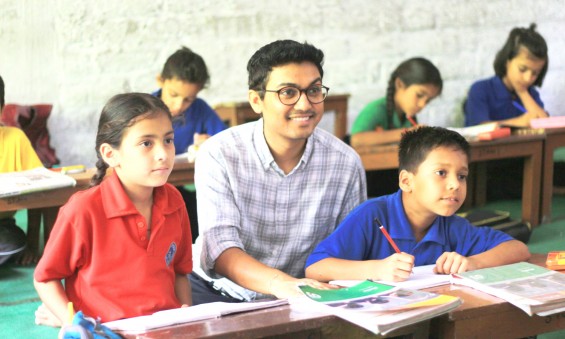
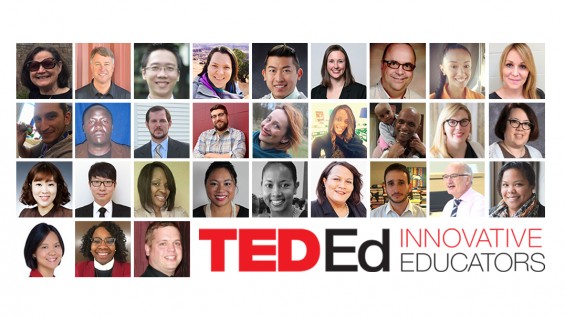
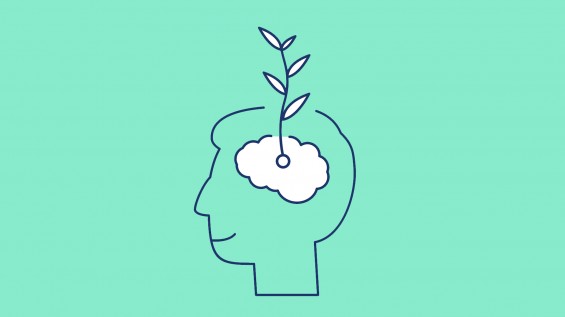

How do I become a part of TED-Ed Innovative Educators? I am a masters student pursuing a degree in ESL.
You can learn how to apply to the program, here: http://blog.ed.ted.com/2016/07/20/apply-to-be-a-ted-ed-innovative-educator/